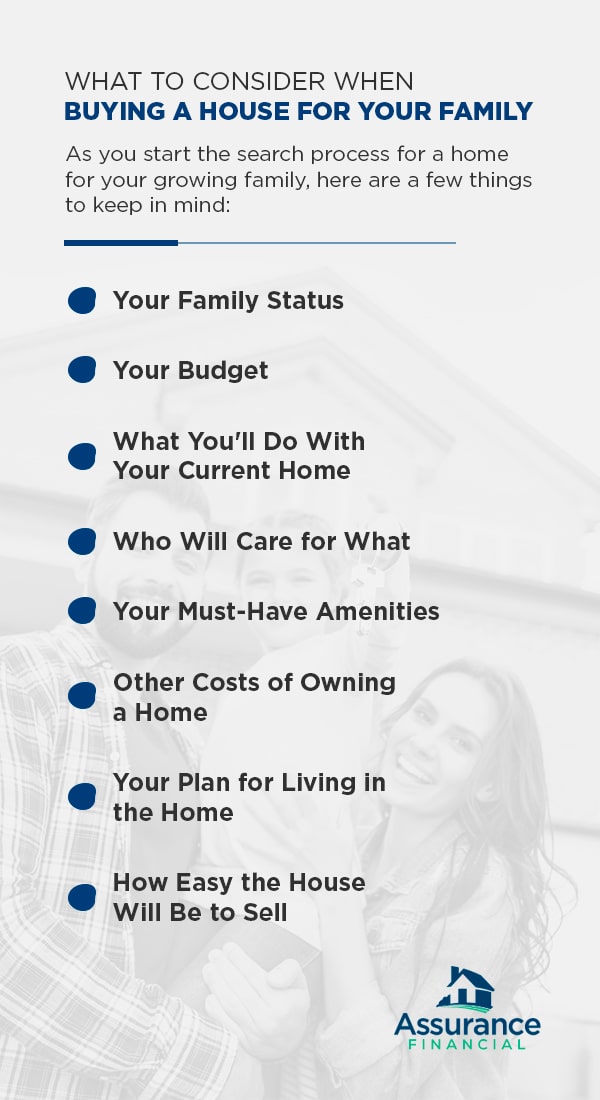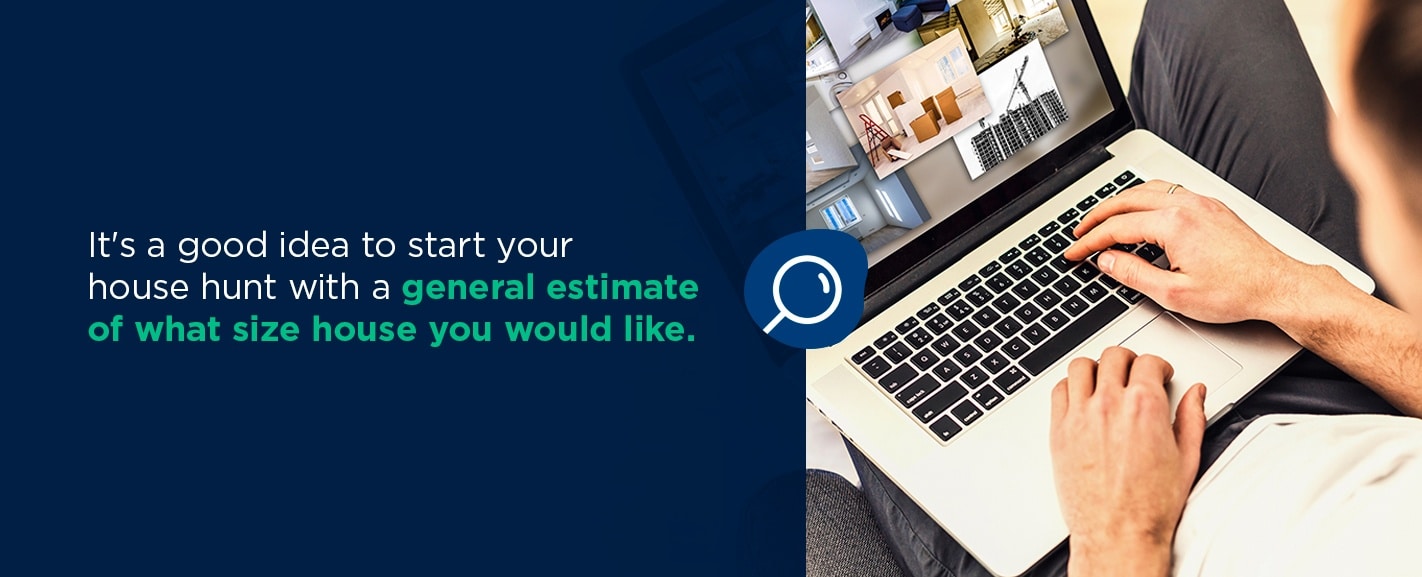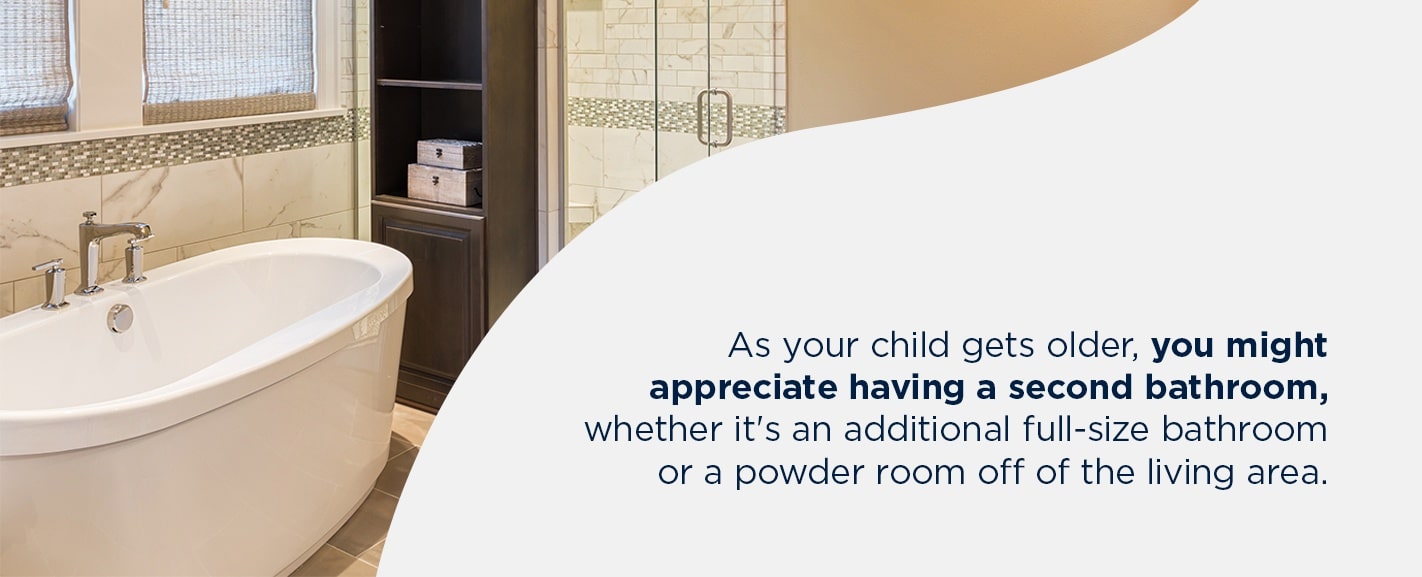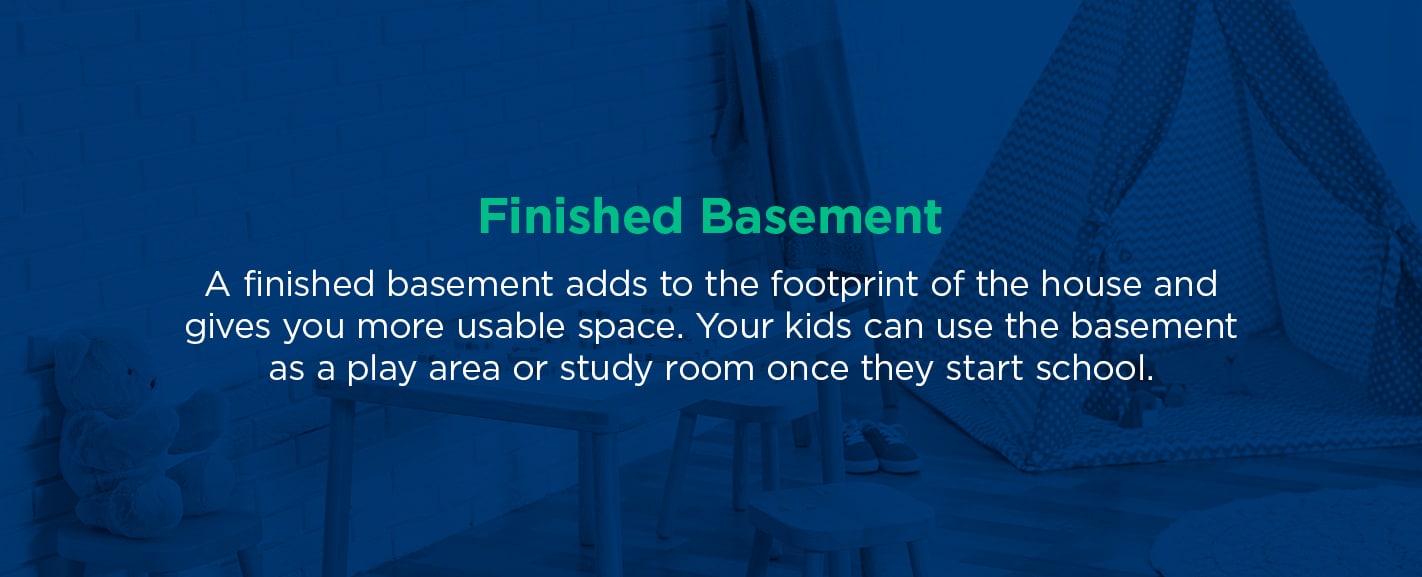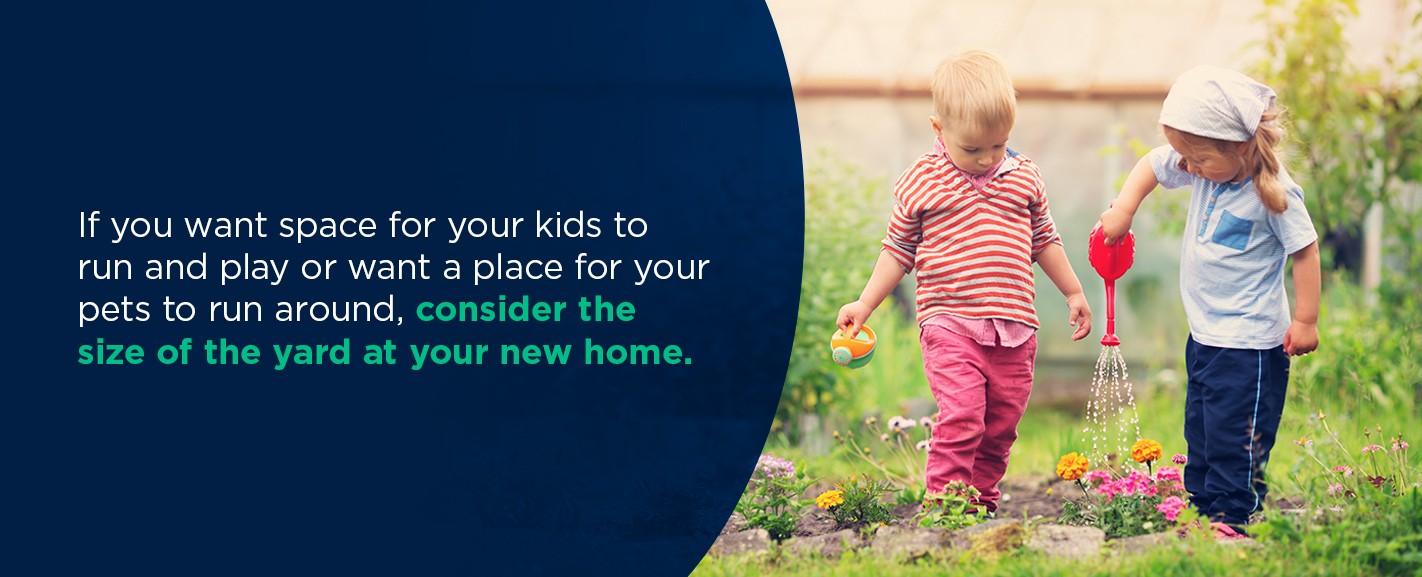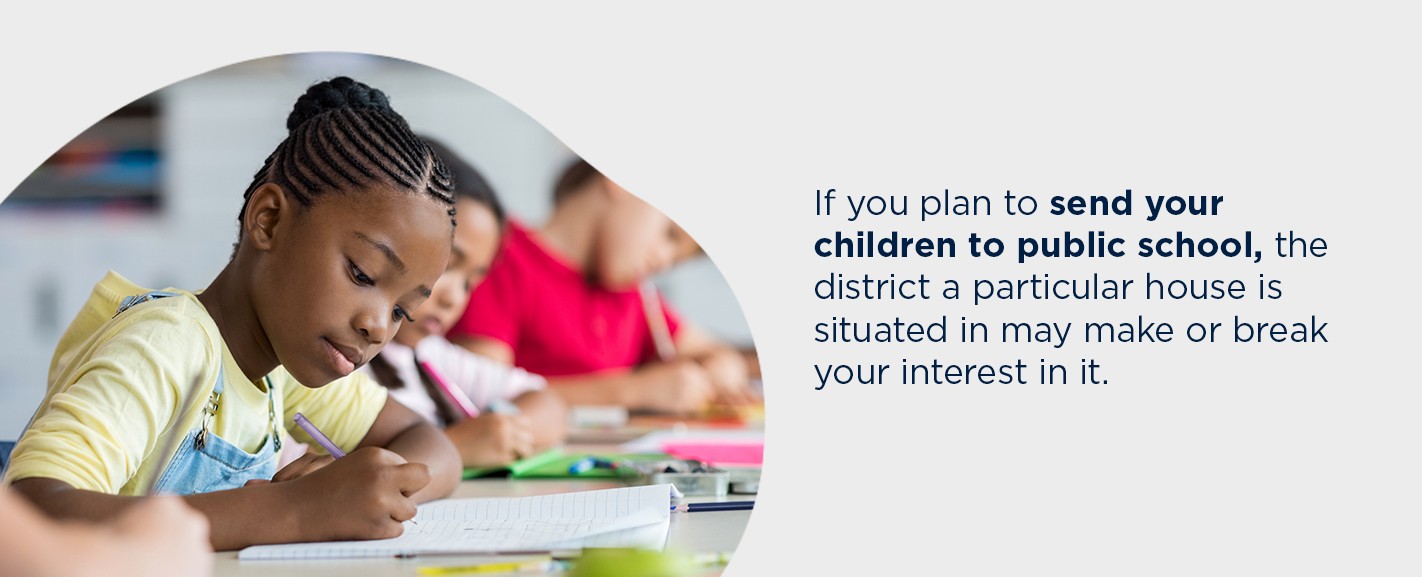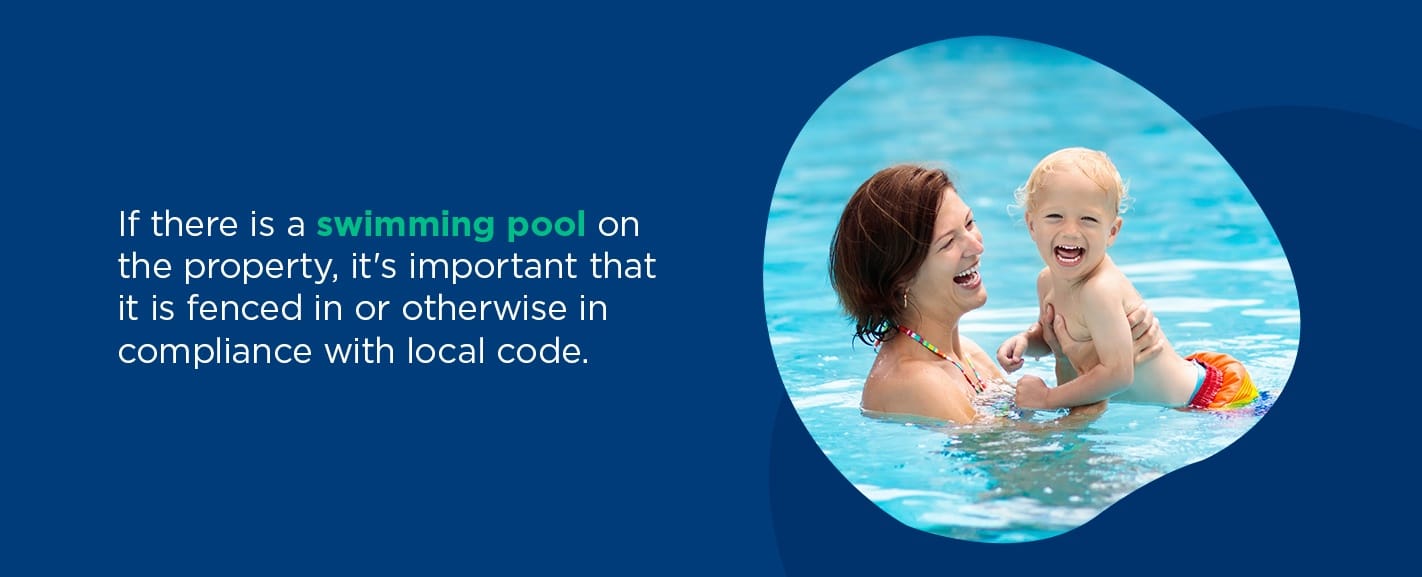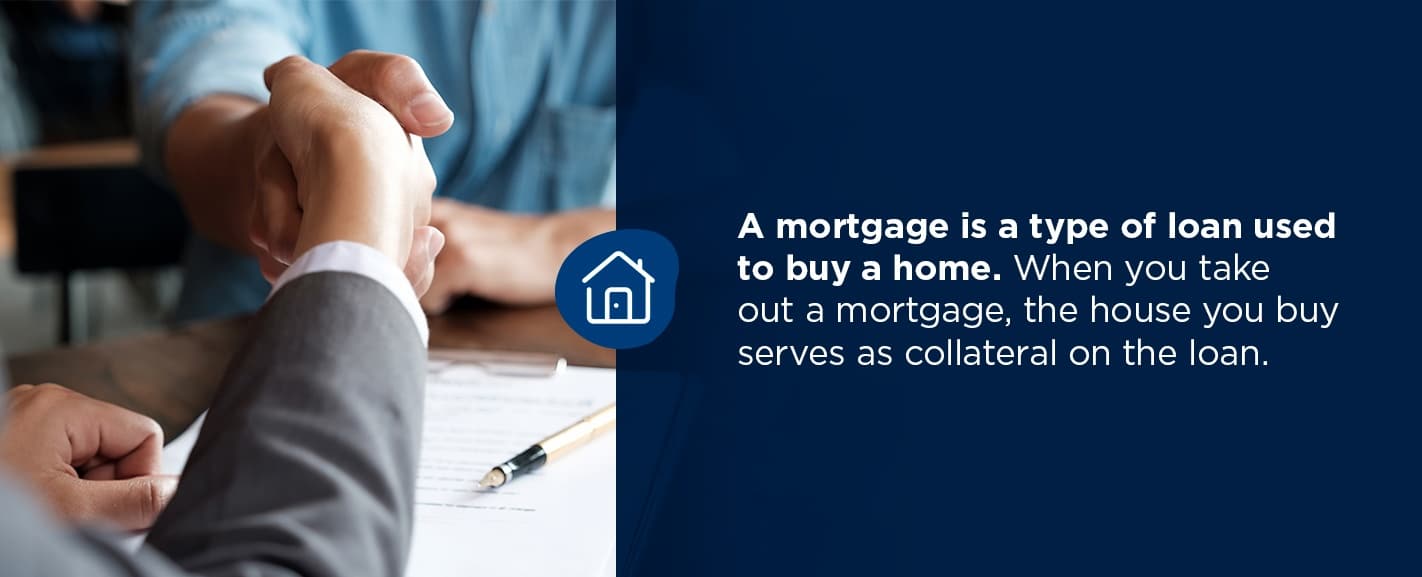A starter home isn’t meant to be forever — that’s why it’s called a starter home. If your family is about to grow, you might find yourself wondering if you should buy a bigger house. For 26% of buyers between the ages of 30 and 39, a life change, such as the birth of a child, was the key factor that encouraged them to look for and buy a new home.
Whether you already own a home or not, there are some factors to consider during the process of buying a home for your family. Carefully consider what you need from your new home, as well as how the decision to buy a house may affect your finances and other areas of your life.
What to Consider When Buying a House for Your Family
There’s more to buying a house than making sure you find a place with the right number of bedrooms or a decently sized kitchen. As you start the search process for a home for your growing family, here are a few things to keep in mind:
1. Your Family Status
Consider the size of your family today and what the size of your family might be in the near future. You and your partner may be expecting your first child, or you may have recently had a baby. Do you plan to be a one-child household, or do you hope to grow your family beyond that? If you have plans to continue adding to your family, you may want to look for a house to grow into. If you purchase a two- or three-bedroom home right now, your family could outgrow it quicker than you’d like.
2. Your Budget
Just as you did when buying your first home or deciding how much you could afford to pay for rent, think carefully about your budget before you buy a bigger and potentially more expensive home. If you own your home, how much will you get from the sale? When setting your budget, it helps to err on the conservative side. If you and your partner both work, it might be a good idea to use just one partner’s income when determining how much house you can afford. That way, if one person loses their job, you can still be able to make your mortgage payments.
3. What You’ll Do With Your Current Home
If you own your current home, decide what you will do with it before you start the process of looking for a new house. It’s often ideal to sell your existing house first so you do not end up paying two mortgages. Selling your current home before you shop around or make an offer on a new property can also give you peace of mind that you have the down payment and closing costs needed for your next home purchase.
If you decide you aren’t going to sell your current property, it may be helpful to figure out what you’ll do with it — like renting it out or listing it as a vacation property — before moving on.
4. Who Will Care for What
Moving to a bigger home or a home with a bigger yard can mean more responsibilities. Before you make the move, it’s a good idea to think about what more space or more property will actually mean for you. Will you need to hire a landscaper or gardener to care for the lawn and other exterior areas of your home?
If you are moving into a house that is significantly larger than your current home, will you be able to keep up with cleaning it? You might decide to hire a housekeeper to clean the property for you. You may also decide to create a cleaning schedule and chore chart with your family members so everyone knows what needs to be done, when it needs to be done and who is responsible for doing it.
5. Your Must-Have Amenities
Before you look for a house for your growing family, make a list of the things you absolutely have to have, such as a garage, a finished basement or a sizable back yard. Focus on things that you likely wouldn’t be able to change once you bought the home or that would be difficult to adjust.
For example, you can always update a kitchen or finish a basement, but it can be difficult to make a small backyard bigger or to add another story onto your home.
6. Other Costs of Owning a Home
Your mortgage payment is likely to increase when you buy a bigger house. It may not be the only cost of living that is likely to go up, though. You might have a higher property tax payment, as well as higher utility bills if you move to a bigger, more expensive property. There is also the cost of moving and purchasing new furniture to keep in mind.
7. Your Plan for Living in the Home
Though life can be unpredictable, it helps to go into a home purchase with a general sense of how long you’ll stay there. Do you see your next property as a long-term home, somewhere you’ll remain until your children have grown up and moved out? Or do you expect to sell the house and move somewhere else in the near future? How long you hope to stay in a house may influence the size of the property you buy and the features you look for.
8. How Easy the House Will Be to Sell
Even if you hope to stay in your next home for many years, it is worth considering the resale value of the property and whether it may be easy to sell in the future.
Although there is no guarantee a home will sell quickly later on or that its value will increase notably, there are some signs that suggest that a property may be in-demand when you decide to move on. A house with good bones, that’s on a relatively quiet block in a popular neighborhood and that is near good schools is likely to sell more quickly compared to one with an unusual layout that is on a busy street.
What to Look for in a Family Home
Once you’ve considered the big picture of buying a new home, it’s time to focus on what you actually want the new home to have. Factors such as the size of the house, the number of rooms it has and its location can all influence how comfortable you and your loved ones feel inside the home.
When deciding what you want in your family home, there is no right or wrong answer. What works for you, your partner and your children are what matters most in your selection. With your family in mind, here are some factors to pay attention to when house hunting:
1. Overall Size of the House
It’s a good idea to start your house hunt with a general estimate of what size house you would like. You can use a figure such as the amount of square footage or the number of rooms to guide you. For example, you might want a bedroom for every person in your family, as well as an extra room for a guestroom and a room for an office or lounge area. Also, consider the size of the backyard you’ll want and the size of additional features, such as a garage or storage shed.
2. Number of Bedrooms
How many bedrooms do you need? In addition to having enough rooms for each person in your family at the moment, you might want a house that offers room to grow and has more bedrooms than you currently need.
3. Number of Bathrooms
Another thing to look for in your new home is the number of bathrooms available. If you have a small family, you may think one bathroom is enough. But as your child gets older, you might appreciate having a second bathroom, whether it’s an additional full-size bathroom or a powder room off of the living area. You and your partner might also appreciate having your own en-suite attached to the main bedroom in the house.
4. Tubs vs. Showers
Along with the number of bathrooms, consider what type of fixtures they contain. A shower stall without a tub might be a good fit when only adults live in your home. But it’s often easier for babies, toddlers and young children to wash up or be bathed in a tub. You may want to look for a house that has a least one bathtub to make bath time easier for everyone.
5. Finished Basement
A finished basement adds to the footprint of the house and gives you more usable space. Your kids can use the basement as a play area or study room once they start school. You can also use it as a bar or lounge area for entertaining guests in your home.
6. Unfinished Basement
You may prefer to buy a house that has an unfinished basement or other rooms that need renovation or finishing. Purchasing a home that needs some work gives you options. You can turn the basement into an in-law suite, for instance, or make it into the main bedroom. If you have the time to work on home improvement projects, buying a house that needs some work might be a good way to save money and make your new family home feel like your own.
7. Amount of Storage Space
Kids generate a lot of stuff, from strollers and diaper bags to school supplies and sporting equipment. You might want a house that has plenty of room to store all their items, whether in the form of a large mudroom or ample closet space. You may also want to make sure there is plenty of storage space for you and your partner’s possessions, especially if you have a large wardrobe or extensive shoe collection.
8. Exterior Space
One of the reasons people often move as they start a family or as their family grows in size is to take advantage of increased exterior space. If you want space for your kids to run and play or want a place for your pets to run around, consider the size of the yard at your new home.
In addition to size, another thing to consider is the layout and design of the yard. Is it fenced in, or can you easily add a fence for privacy and security? Is the yard on a hill, or is it relatively flat? It’s also worth noting how close the yard is to the street. Even with a fence, you may prefer to look for a yard that is set back from the road to reduce the chance of your kids or pets running into the street.
9. Home Layout and Floor Plan
Some home layouts or floor plans make more sense than others, and some are better suited for families with children. Consider the location of the bedrooms in the new home. Will your bedroom be close to your child’s so you can hear them if they have a bad dream and call out in the middle of the night?
Also, think about the location of the bathrooms. Having at least one bathroom on each floor can be convenient, as can having a bathroom located near the kids’ rooms and one near or attached to the main bedroom.
10. School Districts
If you plan to send your children to public school, the district a particular house is situated in may make or break your interest in it. Even if you don’t want to send your kids to public school, it can still be worthwhile to look for a home in a popular district, as the quality of schools around a property often affects its resale value.
11. Neighborhood Feel
The general location of the home is another thing to look for. What can the neighborhood offer you and your family? You might want to look for playgrounds nearby, local cafes or restaurants, and easy access to shopping. Research the neighborhood before putting in an offer. Is it the type of place where people feel comfortable taking a walk or do people mainly drive around in their cars?
12. Safety
Neighborhood safety is one thing to consider. Another thing is the safety of the home itself. Some houses aren’t particularly kid-friendly. They might have open stairs or railings that are easy for a small person to slip through or get caught in. If there is a swimming pool on the property, it’s important that it is fenced in or otherwise in compliance with local code. The condition of the electrical system is another safety concern to think about.
[download_section]
Consider a Mortgage When Buying a Family Home
It costs the average family $233,610 to raise a child from birth through the age of 17, or about $12,980 per year. When you’re spending that much per child, you might wonder how it would be possible to afford to buy a house for your family — particularly a house that has a higher price tag than the one you currently own or rent.
Fortunately, you don’t need to pay for your new house in full upfront. A mortgage allows you to make payments on the property that are spaced out over many years. The most popular mortgage term is for 30 years, which gives you plenty of time to pay down the loan.
How Does a Mortgage Work?
A mortgage is a type of loan used to buy a home. When you take out a mortgage, the house you buy serves as collateral on the loan. That means if you are unable to make your monthly mortgage payments, the bank or mortgage lender can foreclose on, or claim, your property.
To get a mortgage, you first need to apply for it. During the application process, a lender will likely verify your income, credit score and savings to determine the amount you are eligible to borrow and the interest rate you will pay. The interest rate is the cost of getting the loan. It’s an additional amount you pay each month on top of the principal payment to the lender.
What Mortgage Options Are Available?
There are multiple types of mortgages available for different homebuyers. If you are buying a house for the first time, there are several programs specifically for first-time homebuyers. First-time buyer loans often accept borrowers who earn lower incomes or who do not have a sizable down payment to pay upfront. There are also mortgages available for people who already own a home and are looking to purchase another one. Construction loans are an option if you plan to build your family’s next home.
Mortgages also differ in how they are repaid and the length of the loan. Although many borrowers opt for a 30-year loan, loan terms of 15, 20 or 25 years are also available. The shorter the mortgage term, the higher your monthly payments will be, but the less you will pay in interest over the life of the loan. Mortgages with shorter loan terms also often charge lower interest rates.
The amount of interest you pay on a mortgage depends on several factors. Your credit score and the size of the down payment affect the interest rate. The higher your score and the bigger your down payment, the lower the interest on the loan. Interest rates are also based on market conditions.
If you decide to get a fixed-rate mortgage, the interest rate will stay the same for the length of the loan. In a mortgage with a variable rate, the interest rate can change over the term of the loan, depending on the market. That means your monthly payment might increase or decrease every so often, which can affect your budget.
Apply for a Mortgage Today
If you’re considering buying a house for your growing family to live in, it’s a good idea to begin the mortgage process before shopping. Getting pre-qualified for a home loan before you begin the house hunt means you know how much you can comfortably borrow and whether or not a lender is likely to approve you for a loan.
Applying for a mortgage doesn’t have to be complicated. In fact, Abby, Assurance Financial’s virtual assistant, can walk you through the process in just 15 minutes. To get started, you’ll need proof of income, such as your paystubs, your ID and your most recent tax return. We’ll take care of the rest.
Ready to purchase a home for your growing family? Apply online with Abby today!
Sources:
- https://www.nar.realtor/sites/default/files/documents/2020-generational-trends-report-03-05-2020.pdf
- https://www.phillymag.com/sponsor-content/tips-buying-house-growing-family/
- https://www.realtor.com/advice/buy/home-youre-buying-good-resale-value/
- https://www.quickenloans.com/blog/things-look-shopping-next-home
- https://www.todaysparent.com/family/family-life/when-to-buy-a-bigger-house/
- https://www.opendoor.com/w/blog/how-to-find-the-ideal-home-when-starting-or-growing-a-family
- https://movement.com/blog/2016/04/19/growing-family-7-things-you-need-to-know-before-buying-bigger/
- http://www.exithgm.com/buying-a-home/buying-house-growing-family/
- https://primaryresidentialsf.com/home-buyer-advice/buying-a-house-for-a-growing-family/
- https://www.usda.gov/media/blog/2017/01/13/cost-raising-child
- https://assurancemortgage.com/everything-you-need-to-know-about-30-year-fixed-rate-mortgages/
- https://assurancemortgage.com/experienced-homebuyer/
- https://assurancemortgage.com/first-time-home-buyer-loans/
- https://assurancemortgage.com/remodeling-construction/
- https://www.consumerfinance.gov/ask-cfpb/how-does-paying-down-a-mortgage-work-en-1943
- https://www.lendingtree.com/home/mortgage/how-does-a-mortgage-work/
- https://www.nerdwallet.com/blog/mortgages/how-to-apply-for-a-mortgage/
- https://assurancemortgage.com/apply/


